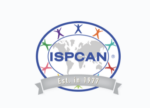Overview
Position Overview
The Immunization Section within the Division of Infectious Diseases is responsible for the Vaccines for Children program, a federally-funded, state administered program that provides free vaccines to eligible children ages 18 and younger; the COVID-19 vaccine program; maintaining I-CARE, Illinois’ Immunization Information System; and educating the public on vaccines.
Essential Functions
- Assists the Registry Coordinator in the training of local health department personnel, college, school and health personnel, private providers and qualified health related organizations in the use and applications of The Immunization Registry, including conducting live presentations.
- Develops and updates web-based training videos that instruct providers how to navigate the Immunization Registry, which are available on the Immunization Registry website, by writing the scripts as well as using software to create the videos.
- Assists Registry Coordinator in ensuring the VFC providers are fully compliant and accountable for their vaccine inventory and management system when electronically ordering vaccines for their practices using the Immunization Registry through conducting trainings, trouble-shooting provider questions and technical problems with immunization registry.
- Assists with the immunization Registry Help Desk to help providers/ users in enrolling in the registry, including, but not limited to Vaccine for Children (VFC) and non-VFC providers.
- Receives request and performs patient record searches on anyone who has ever received vaccines and have been entered (manually or electronically) into the Registry in Illinois.
- Performs other duties as required or assigned which are reasonably within the scope of the duties enumerated above.
About Illinois Department Public Health
In Illinois, if you have eaten at a restaurant ... required hospital or nursing home care ... vacationed at a campground or swam at a public beach or pool ... drank a glass of milk ... got married or divorced ... had a baby, the Illinois Department of Public Health (IDPH) has touched your life in some important way.
Assuring the quality of our food, setting the standards for hospital and nursing home care, checking the safety of recreation areas, overseeing the inspection of milk producing farms and processing plants, maintaining the state's vital records and screening newborns for genetic diseases are just some of the duties of IDPH.
In fact, IDPH has 200 different programs that benefit each state resident and visitor, although its daily activities of maintaining the public's health are rarely noticed unless a breakdown in the system occurs. With the assistance of local public health agencies, these essential programs and services make up Illinois' public health system, a system that forms a frontline defense against disease through preventive measures and education. Public health has provided the foundation for remarkable gains in saving lives and reducing suffering. Today, life expectancy is 80 years for women and 74 years for men compared with fewer than 50 years at the at the beginning of the 20th century.
In the past, IDPH directed state efforts to control smallpox, cholera and typhoid, virtually eliminated polio, reduced dental decay through fluoridation of community water supplies, and corrected sanitary conditions that threatened water and food supplies.
Today, IDPH has programs to deal with persistent problems that require continued vigilance – infectious diseases, such as AIDS (acquired immunodeficiency syndrome), HIV (human immunodeficiency virus), SARS (severe acute respiratory syndrome) and meningococcal disease; foodborne and communicable diseases, such as E. coli 0157: H7, monkeypox, salmonella and West Nile virus; vaccine preventable diseases; lead poisoning; lack of health care in rural areas; health disparities among racial groups, breast, cervical and prostate cancer; Alzheimer's disease; and other health threats -- sexually transmitted diseases, tobacco use, violence, and other conditions associated with high-risk behaviors. In addition, IDPH has been charged with handling the state's response to the COVID-19 pandemic and the threat of bioterrorism.
IDPH, which is one of the state's oldest agencies, was first organized in 1877 with a staff of three and a two-year budget of $5,000. IDPH, now has an annual budget of $2.9 billion in state and federal funds, headquarters in Springfield and Chicago, seven regional offices located around the state, three laboratories, and 1,200 employees.
IDPH is organized into 12 offices, each of which addresses a distinct area of public health. Each office operates and supports numerous ongoing programs and is prepared to respond to extraordinary situations as they arise.



